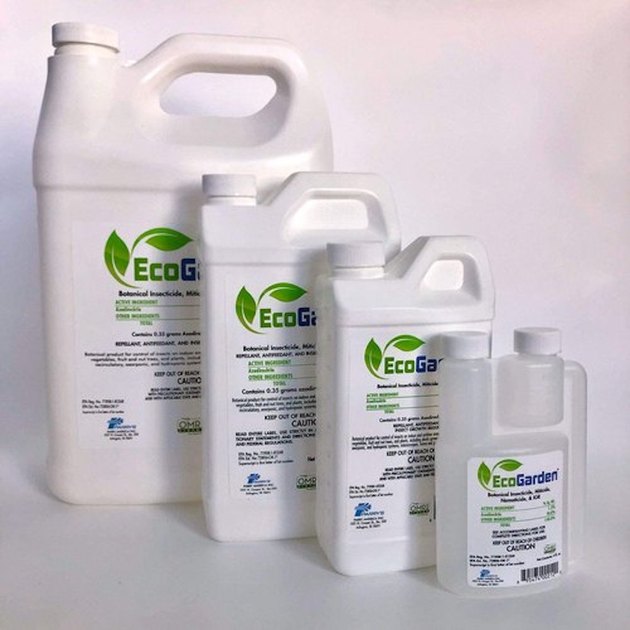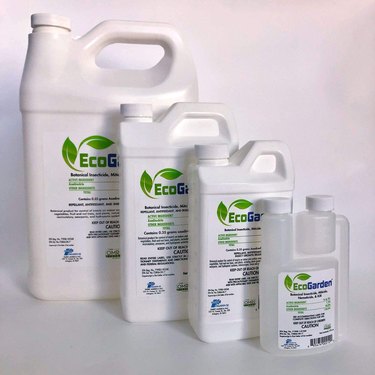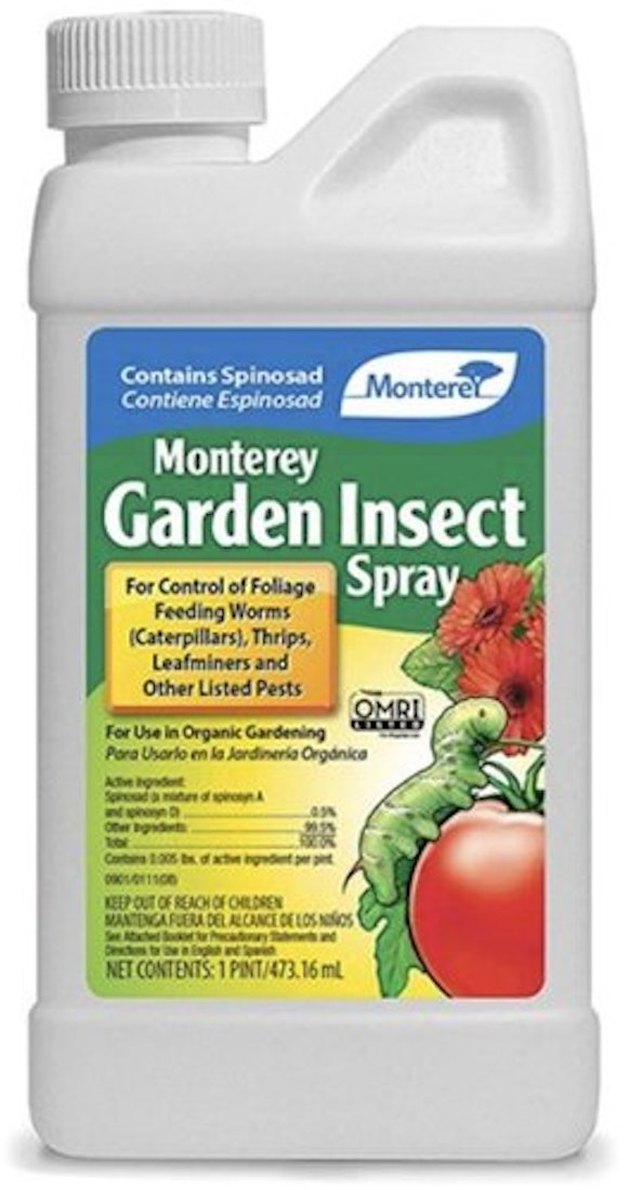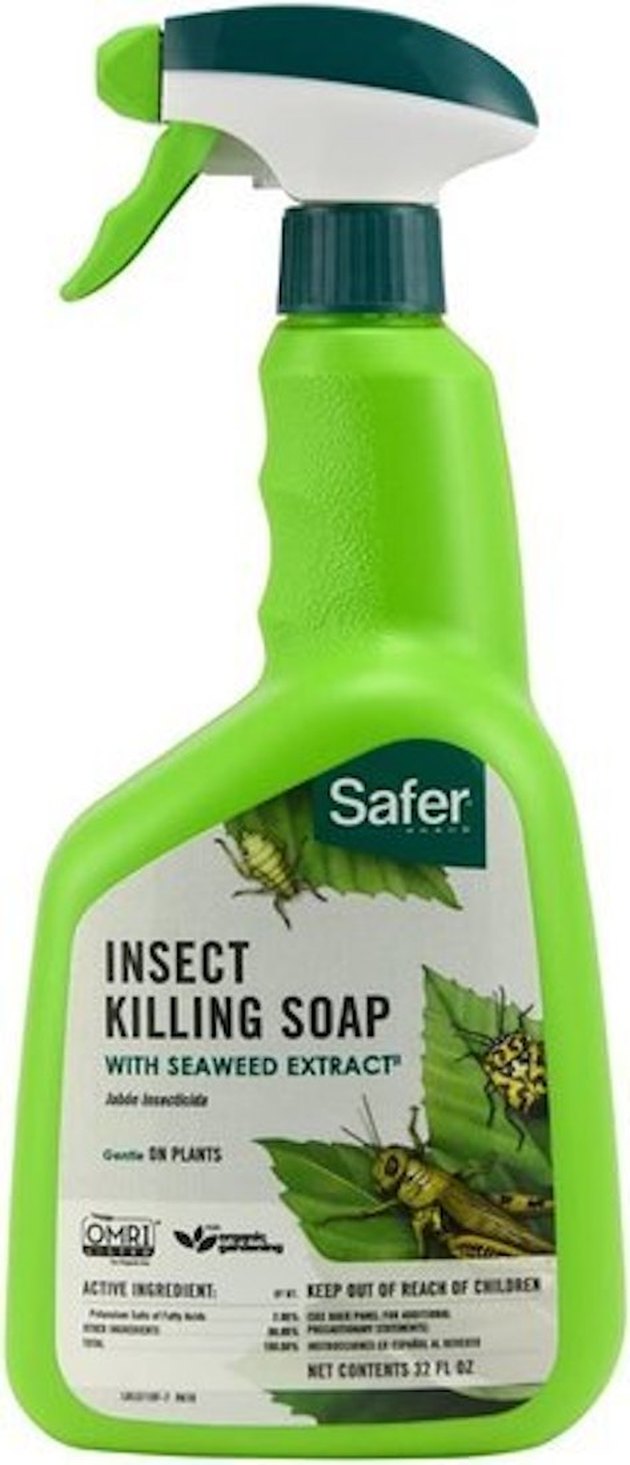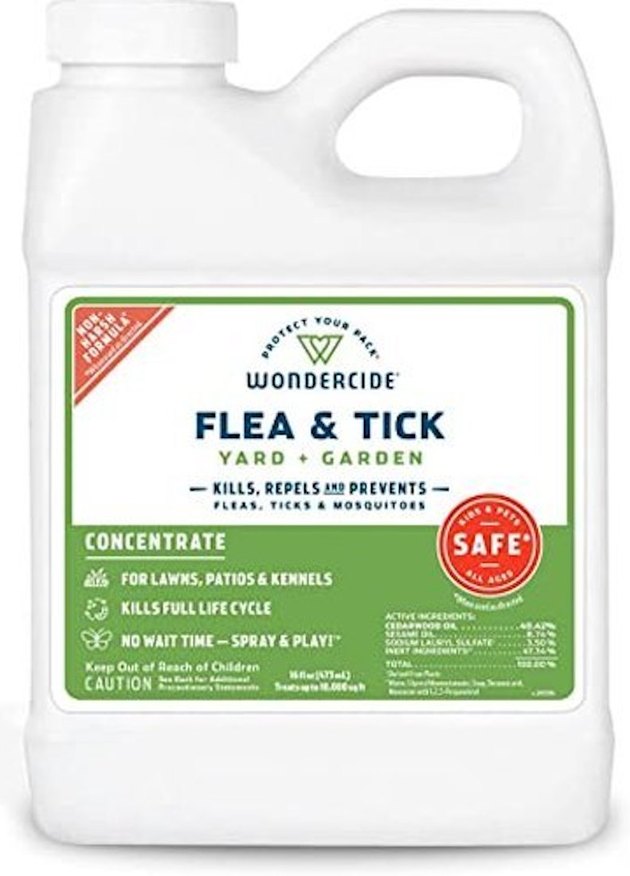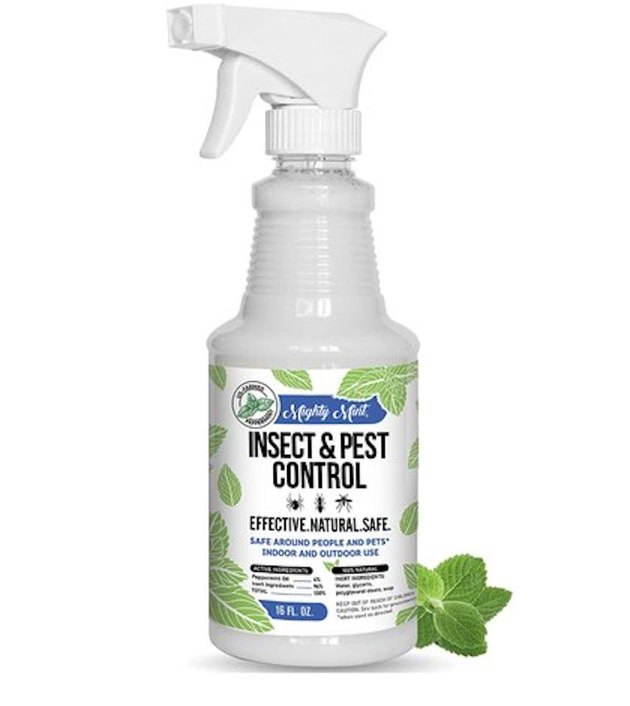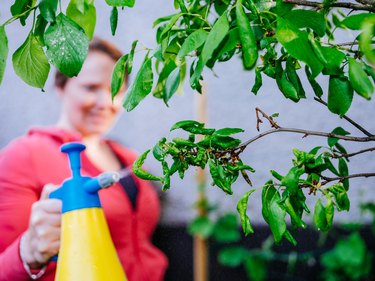
Nothing is more disheartening than checking your flower or vegetable garden and noticing an infestation of insect pests decimating your plants. If left unchecked, unwanted pests can devastate foliage, fruits and flowers, spread disease and possibly kill your plants. Naturally, your first reaction is to have an instant death wish for these destructive insect pests and use the first thing you can grab to kill them. However, using safer natural pesticides over those that are more toxic not only protects your local ecosystem but is also helpful in protecting beneficial insects and important pollinators that keep your garden happy and healthy.
Whether you follow organic gardening practices in your home garden or just desire to use non-toxic organic pesticides for garden pests, you have many options that will handle an infestation. As with any problem you notice in your garden, diagnosing and handling the problem quickly always leads to the best outcome for your plants. When used correctly, organic pesticides can offer the same control as synthetic options, and many are less toxic for you, your children and your pets, as well as your local environment.
Video of the Day
Video of the Day
We've outlined some important considerations when selecting the best organic pesticide for your particular insect pests and situation. In addition, we've also reviewed some of the better and safer products offering the best course of action for pest control.
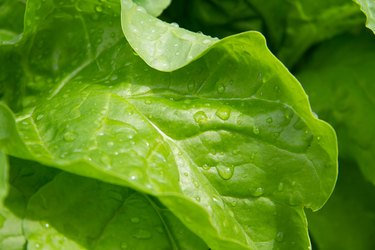
What to Consider When Selecting an Organic Pesticide
Diagnose the Pest: The first thing you'll want to do before purchasing an organic pesticide is identify the insect pests creating the problem. Once you know the exact type of garden insect you're trying to control, you'll have a better idea of the best pesticides that will treat the infestation. You have many resources that will assist you in the identification. Check with your gardening friends, search for the pest online, or take a sample of the pest to your local extension office. Just like synthetic pesticides, some natural pesticides treat certain pests but won't have much effect on others.
Treatable Pests: Before you grab the first bottle labeled for organic use, be sure to read the label for all the garden insects the product controls. Most products will tell you if they treat specific insects like aphids, mites or caterpillars. For example, an insecticidal soap might offer adequate pest control for aphids but won't do a thing for snails or slugs. Organic pesticides come in many different forms from liquids, soaps, oils and powders and each treats a specific variety of garden pests, so be sure to research which one will offer the best pest control for your specific situation.
Check Label Toxicity: Just because a pesticide is labeled organic doesn't mean it's not harmful. Some natural pesticides are just as toxic and sometimes more toxic than some synthetic types. Whether a synthetic pesticide or organic, all will have a signal word on the label signifying their toxicity. The label's signal word will either be "danger," "warning" or "caution" and when selecting the insecticide with the least toxicity, you want to choose the one with "caution" on the label. These organic pesticides will be least likely to cause harm to you, your pets or the environment.
How to Use: It's also very important to read the product label to know how to safely use the product and the best conditions for its use. Although considered organic, these pesticides can still create problems if not used correctly. If it's a concentrated mix, be sure to use only the recommended amount, as more is not better, and apply under the conditions suggested on the label. Some organic pesticides will burn the foliage leaves if applied when it's sunny and temperatures are too hot. If needed, reapply when the label suggests and wear any safety gear like gloves or goggles as suggested. Just like when using synthetic pesticides, always wash your hands after use and store your organic pesticides out of the reach of children or pets.
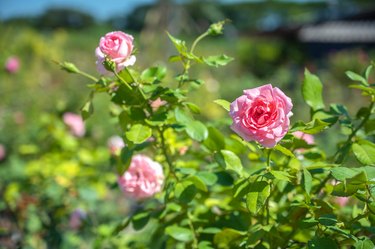
The Best Overall Organic Pesticide
EcoGarden's concentrated organic pesticide contains the highest concentration of Azadirachtin technical in the world, which is derived from neem tree seeds and is a broad spectrum botanical insecticide. Although derived from the neem tree, it is a stronger formulation than standard neem oil and controls a broader spectrum of garden insects. The OMRI-listed product works well used as an organic insecticide, nematicide and miticide. Treating a wide range of insect pests during all stages of growth, the organic pesticide treats sucking and defoliating insects, as well as soil-borne types like nematodes. Whether it's aphids, tomato hornworms, mealybugs, spider mites or thrips causing the destruction, EcoGarden's organic pesticide takes care of the problem.
The product is safe to use in your vegetable garden, on herbs, berries and fruit trees, ornamental flowers and bushes, as well as your trees. It won't harm beneficial insects such as predators and parasites that attack unwanted insect pests, pollinators like butterflies or bees and won't harm earthworms or your soil's microbes. It's also safe to use around children and pets. You simply mix the concentrated organic insecticide into a pump-up sprayer or spray bottle and treat the targeted pest. It's a good all-around organic pesticide that treats a wide range of pest types and is a safe option for your local ecosystem, as well as people and pets enjoying your yard.
The Best Budget Organic Pesticide
You won't break the bank with Monterey's spinosad natural pesticide, but you will break the hold various types of insect pests have on your garden. Its main ingredient is spinosad, which is a fermented naturally occurring bacteria in the soil. The product will kill insects through paralyzation either by direct contact or when the pest eats treated foliage. The concentrated formula requires dilution and depending on how much you need, you can mix in a quart of water or a gallon and apply with a spray bottle, pump-up sprayer or hose-end sprayer. However, only mix what you can use in one application because the leftover product can't be saved and will go to waste.
The product will kill insects like thrips or fire ants relatively fast and users can see results in as little as 24 hours after only one use. It also has residual action for up to four weeks after its use. Additional garden pests the product controls are caterpillars, fleas, corn borers, leafminers, leafrollers, cutworms and loopers. The OMRI-listed product is safe for use throughout the landscape and isn't toxic to pets and children. However, it can harm bees while the product is still wet, but once it dries, it's no longer harmful.
The Best Organic Pesticide for Indoor Plants
This Safer Brand insecticidal soap comes in a ready-to-use spray bottle. The ingredients are made up of potassium salts and fatty acids, as well as seaweed extract that improves the overall health of all your plants as well as accelerates their growth. The natural pesticide is OMRI-listed and safe for use in all aspects of organic gardening, houseplants, outdoor plants and as well as hydroponic gardens. The insecticidal soap spray won't harm beneficial insects or pollinators and is safe for use up to the day of harvesting any fruits or veggies, as it has no residual effects. It won't harm any children or pets whether used indoors or outside.
The organic pesticide targets a vast array of insect pests like mealybugs, whiteflies, aphids, spider mites, squash bugs, thrips and soft scales to name a few. It kills the insects on contact by penetrating and weakening their waxy coating and causing water to then leak from their cellular membranes. It works best when you saturate the targeted insect pest and you can reapply every seven to 10 days, if needed.
The Best Organic Pesticide for Fleas and Ticks (16 oz)
If you're looking for a natural pesticide product that will kill insects like ticks and fleas and won't harm you, your kids and especially your pets, then look no further than Wondercide's organic pesticide concentrate. The natural insecticide product contains no harmful chemicals, has no artificial ingredients and contains plant-based ingredients and essential oils. Its main ingredients include cedarwood oil, which repels insects like fleas and ticks from the area and suffocates them, sesame oil and sodium lauryl sulfate. The product also eliminates outdoor ant and mosquito problems while not harming beneficial insects or pollinators. Other insect pests it kills are chinch bugs, Japanese beetles, gnats, chiggers and no-see-ums, and more.
The 16-ounce bottle treats up to 10,000 square feet and is safe to use on your lawn, hardscape areas, vegetable gardens, as well as all your other areas of the landscape. The natural pesticide will treat a pest infestation or you can use it for preventative measures. It's safe for children and pets and there's no need to wait for the product to dry before entering an area. It's easy to use and safe for the entire ecosystem.
The Best Non-Toxic Organic Pesticide
Minty Mint's peppermint oil comes in a ready-to-use spray bottle, so no mixing is required. It's a straight insecticidal soap and peppermint oil mixture made up of glycerin and plant-derived fatty acids that break down the outer shell of soft-bodied insects like flying insects, spiders and ants. The natural pesticide is non-toxic and safe to use around children and pets and won't harm beneficial insects or pollinators. You can use it on your houseplants or home garden outdoors.
The organic pesticide quickly kills adult insects and those in the nymph and larval stages. To achieve control, you need to spray the insect directly and cover the undersides of the affected foliage. It's easy to use, as all you have to do is use the spray bottle to saturate the targeted pest and watch them die.
